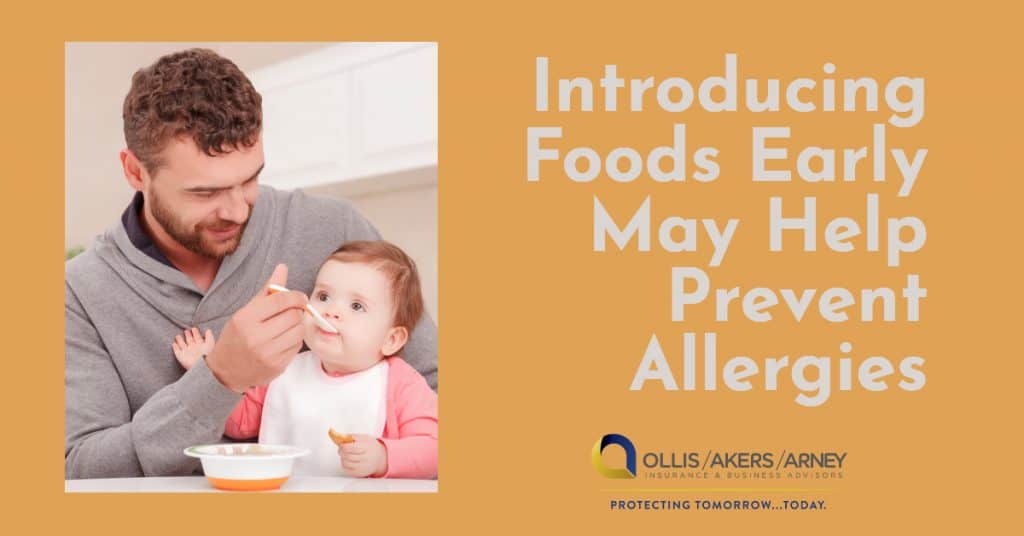According to a new report from the American Academy of Pediatrics (AAP), introducing allergenic foods like peanut products, fish or eggs may help prevent food allergies in infants at high risk of developing one. The report explains that when allergenic foods are given to infants as early as the age of 4 months, the immune system’s cells can take up the allergenic proteins and develop a tolerance to them.
While most infants aren’t considered to be at a high risk for developing food allergies, the report states that infants with a low or standard risk of food allergies can benefit from early introduction, too.
In the report, the AAP also finds:
- Exclusive breastfeeding for the first 3 to 4 months helps protect against eczema during a child’s first two years of life. Any amount of breastfeeding (even if it is not exclusive) beyond 3 to 4 months also protects against wheezing for the first two years and offers even longer benefits in reducing asthma.
- Evidence does not support restricting a mother’s diet during pregnancy or breastfeeding as methods to prevent allergies.
- Hydrolyzed formula does not prevent allergies in infants and children, even in those at high risk for allergic disease, according to research. This finding marks a change from the 2008 clinical report, which concluded there was modest evidence that supported the use of hydrolyzed formula to prevent dermatitis in high-risk infants.
- Recommendations on the prevention of peanut allergy are based primarily on the Learning Early About Peanut Allergy (LEAP) trial. Ground peanuts and other specialized formulations are advised, as whole peanuts are a choking hazard to children under 4.
It’s important to remember, though, that every infant is different. For more information, consult your pediatrician.
For more information on group health insurance or business wellness programs, contact one of our consultants at Ollis/Akers/Arney Insurance & Business Advisors.


